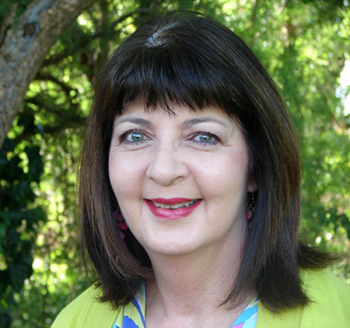Latest News Archive
Please select Category, Year, and then Month to display items
22 September 2021
|
Story Michelle Nöthling
|
Photo Supplied
 Annemarie Le Roux.
Annemarie Le Roux.
“I love working with children.” This is one of the first things Annemarie le Roux mentions when asked to describe herself. This love for children propelled Annemarie into the field of education and she graduated in 2006 with a BEd in Foundation Phase at the UFS. Annemarie immediately immersed herself in the Deaf community, enriching the lives of children at the Thiboloha School for the Deaf in Qwaqwa and the De la Bat School for the Deaf in Worcester.
The academic world enticed Annemarie back to the University of the Free State (UFS) and she was appointed as a junior lecturer in the Department of South African Sign Language (SASL) and Deaf Studies in 2013. Going from strength to strength, Annemarie completed her master’s degree in SASL in 2019, and published an
article earlier this year that she co-wrote with Marga Stander. In this article, they found that SASL “has become an increasingly popular language that hearing university students want to learn as a second language” and subsequently explored different teaching methods used for this emerging group of interested students.
Although now firmly established in academia, Annemarie is still committed to the practical application of SASL. “I am closely involved in student and community engagement through the
SIGNALS Sign Language student association that helps empower the Deaf community and South African Sign Language.” She also interprets for the Deaf community whenever she gets an opportunity, as well as for Deaf students in class and meetings.
On the importance of Sign Language and the recognition of the Deaf community in South Africa, Annemarie believes it will open greater opportunities for development. “More people will be able to learn SASL, and it might even become a subject in school for hearing children.”
Prof Heidi Hudson appointed to international Committee on the Status of Women
2015-11-24
 Prof Heidi Hudson is looking forward to advancing women scholars globally
Photo: Supplied
|
Prof Heidi Hudson, director of the Centre for Africa Studies at the University of the Free State, was recently appointed by the President of the International Studies Association (ISA) to serve on the Committee on the Status of Women from March 2016 to April 2018.
Representing over 100 countries, ISA has more than 6 500 members in North America and internationally, and is the most respected and widely-known scholarly association in the field of International Studies.
She anticipates that her role on the committee will complement her research interests in feminist security theory and practice in Africa. “I am looking forward to playing a part in the advancement of southern scholars, and the promotion of their voice in global academe.”
Prior to Professor Hudson’s appointment, she served as a member of the executive of the Feminist Theory and Gender Studies (FTGS) Section of ISA.
Representing women of the world in academia
The Committee on the Status of Women has the task of reviewing the status of women in the profession, and making recommendations to the president and the Governing Council of ISA on ways of tracking and increasing the status and visibility of women in the profession.
“Some of the goals of the committee for the 2014 to 2016 period include reaching out to women scholars in the global south; creating an ISA networking website for women scholars; and surveying perceptions of the international relations climate and its needs,” said Prof Hudson. It is also responsible for “tracking gender balance within ISA and its journals, and supporting ISA regions in fulfilling the mission of the Committee on the Status of Women,” she added.
Connecting scholars globally since 1959
The ISA has been the premier organisation for connecting scholars and practitioners in fields of international studies, and promoting research and education. ISA cooperates with 57 international studies organisations in more than 30 countries, is a member of the International Social Science Council, and enjoys non-governmental consultative status at the United Nations.
Prof Hudson’s research interests concentrate on discursive and material gender deficits of liberal peacebuilding in the post colony, amongst other subjects. She is also co-editor of International Feminist Journal of Politics.